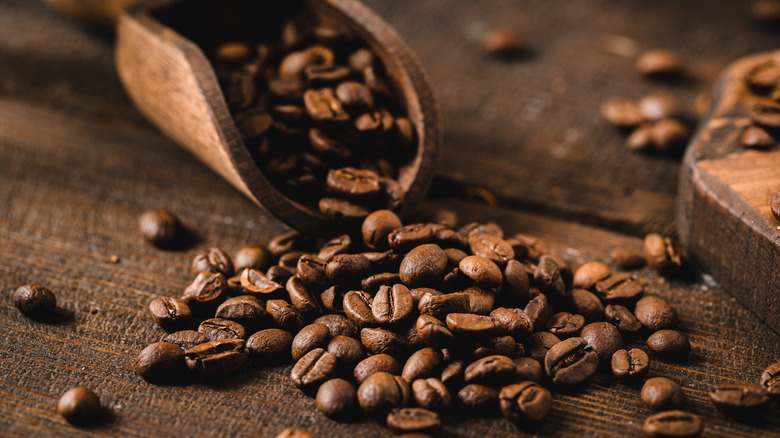Naturally Decaffeinated Coffee Beans Are Closer To Reaching Store Shelves
A research project that's twenty years in the making, taking place at Brazil's Instituto Agronômico de Campinas or IAC's coffee research institute, is reportedly close to creating the first naturally decaffeinated arabica coffee bean plant. You might be asking, you can already buy decaf coffee, so why all the fuss? Well, that's because currently, decaffeinated coffee products can only be produced through boiling or chemical processing. And while it's the best way to enjoy java in the evening hours, connoisseurs claim it affects the flavor of the coffee, stripping away the taste compounds as well as the caffeine. This added processing also makes decaffeinated coffee a more expensive product.
With their research, the IAC is hoping to remove that step from the equation, which should produce a cheaper and tastier decaf coffee. According to The Guardian, the IAC has been cross-pollinating several different low-caffeine coffee plants and recently planted a fresh batch for observation. So far, things are looking promising for the group. One of the head researchers, Julio Cesar Mistro, said, "The results we had so far look promising, we are upbeat."
A coffee bean without the buzz
It's unsurprising that the researchers behind this new breakthrough come from Brazil. The South American country is the top producer of coffee in the world and has been since the 1840s. The IAC has helped create some of the hybrid high-yield coffee plants that Brazil is known for.
According to the National Coffee Association, decaffeinated coffee drinkers make up only 10% of the coffee market, but there are plenty of people, whether they have a natural intolerance or don't want to disrupt their sleep schedule, still interested in a higher-quality product. While this marks major progress, the new and cloned versions of the decaffeinated coffee bean plants will take a number of years to mature. The NCA notes that, on average, it takes a coffee plant three to four years to produce mature fruit for harvest. So it'll be a few years until we can find out if this special planting has been a success or not. Until then, decaf coffee production will remain the same, and folks will have to settle for that dark-roasted, once-brewed grind until something better comes along.

